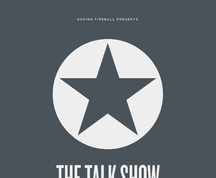On Tuesday, OpenAI CEO Sam Altman announced that the company will allow verified adult users to have erotic conversations with ChatGPT starting in December. The change represents a shift in how OpenAI approaches content restrictions, which the company had loosened in February but then dramatically tightened after an August lawsuit from parents of a teen who died by suicide after allegedly receiving encouragement from ChatGPT.
“In December, as we roll out age-gating more fully and as part of our ‘treat adult users like adults’ principle, we will allow even more, like erotica for verified adults,” Altman wrote in his post on X (formerly Twitter). The announcement follows OpenAI’s recent hint that it would allow developers to create “mature” ChatGPT applications once the company implements appropriate age verification and controls.
Altman explained that OpenAI had made ChatGPT “pretty restrictive to make sure we were being careful with mental health issues” but acknowledged this approach made the chatbot “less useful/enjoyable to many users who had no mental health problems.” The CEO said the company now has new tools to better detect when users are experiencing mental distress, allowing OpenAI to relax restrictions in most cases.
Striking the right balance between freedom for adults and safety for users has been a difficult balancing act for OpenAI, which has vacillated between permissive and restrictive chat content controls over the past year.
In February, the company updated its Model Spec to allow erotica in “appropriate contexts.” But a March update made GPT-4o so agreeable that users complained about its “relentlessly positive tone.” By August, Ars reported on cases where ChatGPT’s sycophantic behavior had validated users’ false beliefs to the point of causing mental health crises, and news of the aforementioned suicide lawsuit hit not long after.
Aside from adjusting the behavioral outputs for its previous GPT-40 AI language model, new model changes have also created some turmoil among users. Since the launch of GPT-5 in early August, some users have been complaining that the new model feels less engaging than its predecessor, prompting OpenAI to bring back the older model as an option. Altman said the upcoming release will allow users to choose whether they want ChatGPT to “respond in a very human-like way, or use a ton of emoji, or act like a friend.”







